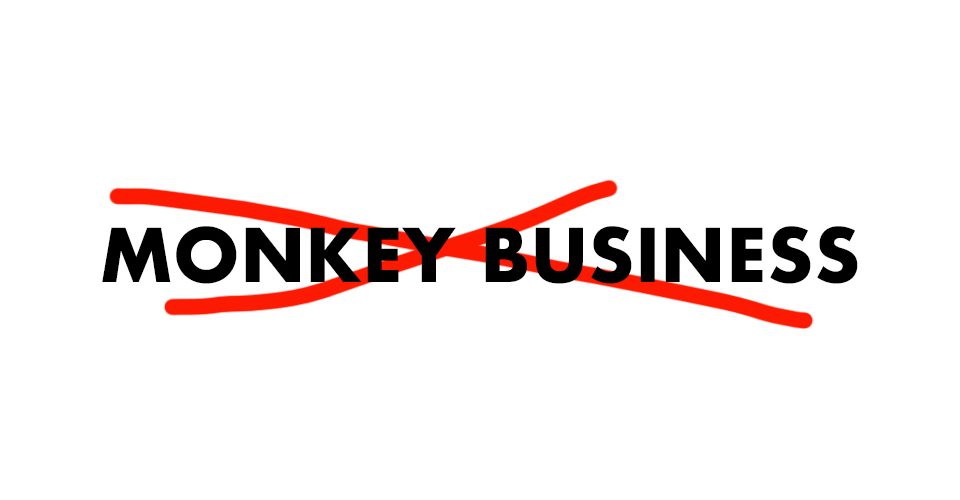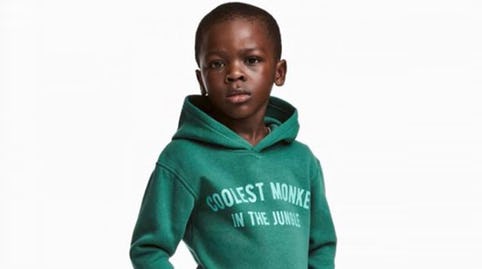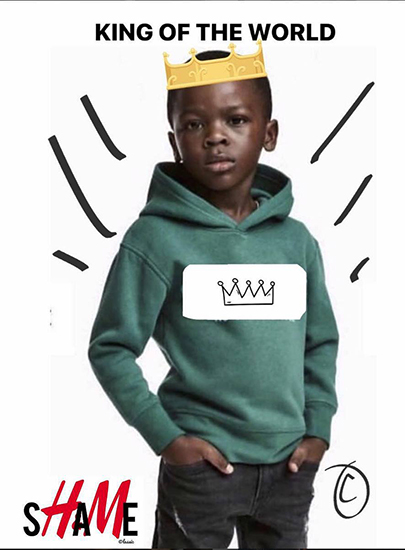No, we’re not overreacting or being too sensitive!
And no, we haven’t “gotten over it.”
H&M ran an advertisement of a black male child wearing a green “coolest monkey in the jungle” hoodie on its UK website. As representation matters, so does the subliminal messages that are sent.
H&M’s advertisement was unequivocally racist.Dehumanizing stereotypes, such as black people as monkeys, are racist and not part of a far away history. Monkey stereotypes still terrorize black people today.
Comparing black people to monkeys is a stereotype dating back to the earliest encounters of Europeans with people of the African continent. The images we get from googling black people as monkeys makes us ill. The monkey comparison serves to dehumanize black people in contrast to the righteous, intelligent or otherwise superior white human. Such beliefs are racist. Coupled with any number of other racist beliefs, the monkey stereotype has been used throughout the world to justify everything from slavery, lynchings and experimental medical practices to discrimination in housing, education, healthcare and employment for those of the African Diaspora. The monkey epithet has been used as recently as against the entire Obama family throughout Obama’s campaign and subsequent presidency, and against a slew of black football players by racist spectators (Mario Balotelli and Dani Alves comes to mind).
In South Africa, a country scarred by decades of Apartheid, H&M opened its first stores in 2015 and already showed racial insensitivity by casting only white models for their ad and by responding to lack of diversity criticism with implying that their ads were meant to “convey a positive image in its stores”. In 2016, a woman named Penny Sparrow faced criminal charges in South Africa for making use of the racist monkey stereotype towards black people. After the 2015 mishap, one would expect H&M to remember its failure and learn from it, keeping tabs on its international markets’ cultural specificities. Because one size doesn’t fit all.
The H&M group has the size, resources and responsibility to be culturally aware of its diverse customer base and employees. To subject black people to dehumanizing stereotypes is racist.
Today’s H&M group is the second-largest global fashion retailer, not the 1947-founded, single womenswear store Hennes & Mauritz of Västerås, Sweden. In 2016, the H&M group achieved sales (including VAT) of SEK 223 billion and increased by 4 percent to 231 billion in 2017. Today, the H&M group counts 161,000 employees in 43 online markets and more than 4,500 stores in 69 markets. For 2017, H&M group planned to open approximately 475 new physical stores. As of August 2017, H&M only operated 172 physical stores in Sweden and Sweden was H&M’s sixth largest market in its 9 month report. Logically, H&M’s global success depends on global sales from a diverse customer base, including black people. And, H&M has proudly collaborated with internationally-renowned black artists such as Beyoncé, Nicki Minaj, Chance the Rapper and most recently The Weeknd (who severed ties with the retail giant after this ad). H&M cannot feign ignorance of its dependence on non-Swedish markets; nor can it profit from partnerships with notable black celebrities on one hand and proffer racist stereotypes on the other.
The H&M group touts a dedication to a sustainable fashion future that develops a “fair and equal fashion industry”; yet, by no account can subjecting black people to racist stereotypes be seen in furtherance of H&M’s touted sustainability.
H&M prides itself on sustainability accolades, UNICEF partnerships and goal of a 100% circular supply chain. However, true sustainability includes people, profit and planet. In subjecting black people to dehumanizing stereotypes, H&M fails to truly make sustainability an integral part of its product and business practices. In failing to exhibit a cultural awareness and perpetuating racist stereotypes of black people, H&M fails our people and hence any vision of true sustainability.
H&M rightfully apologized in the social media aftermath of this racist advertisement. However, we are not satisfied with its toothless apology and remain very concerned that nothing is being done to prevent future racist product launches. As we are working to change the world, we no longer find acceptable the decrying of ignorance or “failed routines” as valid excuses for perpetuating stereotypes to our children.
Countless numbers of artists have reworked the offensive advertisement into more positive imagery. Sometimes we get tired of making lemonade. We challenge H&M to immediately:
–disclose its Diversity employment numbers;
–publish its employment practices in recruitment, hiring, job assignments, promotion and training of employees responsible for its Sales/Marketing;
–provide Diversity training for all employees with hiring authority;
AND
–institute Diversity policies and programs that truly promote a sustainable fashion future.
We, as fashion consumers and Stockholm neighbors, will continue to monitor H&M’s response as we decide if the retailer can regain our trust or dollars.
Krull Magazine




